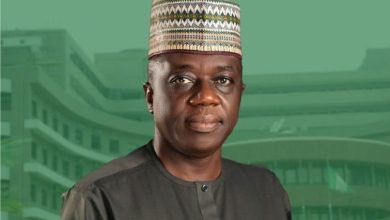Petroleum Minister and NNPC GCEO Clash Over Nigeria’s Oil Production Timeline
Tension brews as Petroleum Minister, NNPC GCEO clash over 2m bpd oil target timeline.
Lokpobiri demands 2025 delivery, Ojulari urges longer roadmap driven by investment and reform.
A potential conflict is emerging between Nigeria’s Minister of Petroleum Resources, Mr. Heineken Lokpobiri, and the Group Chief Executive Officer of the Nigerian National Petroleum Company (NNPC) Limited, Mr. Bayo Ojulari, regarding the country’s oil production targets.
This disagreement stems from conflicting projections presented at the 2025 Nigeria Oil and Gas (NOG) Conference in Abuja. During the event, themed “Accelerating Energy Progress Through Investment, Global Partnerships, and Innovation,” Ojulari announced that NNPC aims to achieve a production level of two million barrels per day (bpd) by 2027. He attributed this goal to planned investments and infrastructure improvements.
However, Minister Lokpobiri quickly challenged that timeline, asserting that the Ministry’s target is to reach the two million bpd mark by the end of 2025. He emphasized that he “cannot afford to wait” an additional two years and reiterated that his office has ambitious goals that need to be met urgently.
Lokpobiri also expressed concerns about uncoordinated directives being issued by other Ministries, Departments, and Agencies (MDAs), which he believes are negatively affecting the oil and gas sector. He criticized policies that were implemented without consulting his ministry, describing them as counterproductive to investment and growth in the sector.
He referenced earlier statements made during the 2025 Offshore Technology Conference (OTC) in Houston, where he raised Nigeria’s production ambition to 2.5 million bpd by the end of the year, an even higher target than what President Bola Tinubu initially set, which mandated NNPC’s new leadership to reach 2 million bpd within the same timeframe.
In contrast, Ojulari offered a more cautious yet optimistic outlook, pointing to recent operational successes. He revealed that Nigeria achieved 100% crude oil pipeline availability throughout June 2025 for the first time in years.
This milestone, he stated, was the result of robust security measures and collaborative efforts within the oil industry. Ojulari highlighted improved financial discipline at NNPC, noting that the company has consistently met its cash-call obligations to joint venture partners. He believes that this reflects a turnaround driven by reforms under the Petroleum Industry Act (PIA), which positions NNPC Ltd. as a fully commercial entity capable of financing and leading major projects.
Ojulari also announced that the Ajaokuta-Kaduna-Kano (AKK) Gas Pipeline has successfully crossed the River Niger, marking a key engineering achievement. He projected that the strategic gas pipeline would be completed by the end of Q4 2025, thanks to innovative contract management and collaboration among stakeholders. He concluded with a call for increased industry investments, stressing the importance of closing deals and delivering tangible results. He urged the NOG conference to evolve beyond discussions and become a platform for celebrating milestones and finalizing critical energy investments.
The differing timelines presented by the Petroleum Minister and the NNPC GCEO highlight a potential strategic disconnect at the highest levels of Nigeria’s oil sector leadership. While Ojulari’s comments suggest a longer-term, investment-focused approach, Lokpobiri’s stance underscores a political urgency to achieve immediate production growth.
The upcoming months will be crucial in determining which vision prevails and whether the country can meet its ambitious oil production targets amidst regulatory, financial, and infrastructural challenges.



